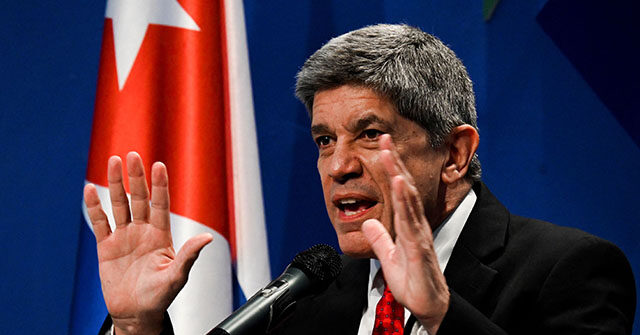Cuban Deputy Foreign Minister Carlos Fernández de Cossío recently expressed serious concerns regarding the implications of President-elect Donald Trump’s anticipated second term, particularly as they pertain to the economic stability of the communist regime in Cuba. Speaking during an official event marking ten years since the “Cuban Thaw” initiated by former U.S. President Barack Obama, which involved a significant easing of relations between the two nations, Fernández de Cossío highlighted the fears surrounding potential U.S. hostility in the following years. The regime views any amplification of U.S. opposition as detrimental, potentially exacerbating Cuba’s already precarious economic situation and worsening the living standards of its citizens. With the shadow of renewed tensions looming, the Castro administration is bracing for challenges that may stretch the limits of its capacities to govern and provide for its people.
The occasion also served as a moment of remembrance for the “Cuban Five,” a group of Cuban spies who infiltrated the American exile community and were involved in activities that led to the deaths of four Americans in 1996. This reflection underscores the regime’s continued commitment to nationalistic narratives framed around struggles against perceived external aggression, a tactic that frequently serves to unify the public against an external foe while distracting from internal problems. Fernández de Cossío’s statements seem to resonate with this framing, as he contends that a sustained U.S. offensive, backed by discontent in the Cuban diaspora, could catalyze “instability and violence” in Cuba, potentially extending beyond the island and affecting regional dynamics.
Despite his concern, Fernández de Cossío remained confident in the survival of the Castro regime, asserting that it would still be standing even after Trump’s presidency comes to an end. He acknowledged, however, that the next four years could be particularly difficult given Cuba’s dire humanitarian crisis marked by extreme shortages of food, medicine, and essential services, alongside unprecedented levels of emigration as people flee the nation. The combination of ongoing economic hardship and social discontent raises questions about the futures of both the regime and the Cuban populace, further complicating the landscape as the nation enters a potentially volatile period.
In response to the ongoing crises, the Castro regime has attempted to implement a “wartime economy” to stem the tide of discontent and keep socialism intact. These emergency measures have, thus far, failed to produce significant improvements, leading to public appeals for international assistance and identification of new economic strategies. The desperation of the situation was illustrated by the regime’s recent outreach efforts to international allies during a communist event in Paris. Fernández de Cossío’s remarks indicate a deep-seated fear of collapsing under the pressure, underscoring how the regime’s reliance on global support might be its lifeline amidst current crises exacerbated by stringent U.S. policies.
Fernández de Cossío reflected on the positive aspects of the Obama-era policies, emphasizing that the “Cuban Thaw” brought a brief period of euphoria and hope for a productive relationship between the two countries. He framed the U.S. as the aggressor in the dynamic, arguing that it failed to uphold commitments made during those thawing negotiations while Cuba allegedly adhered to the agreements. This perspective highlights the long-standing narrative the regime employs to garner domestic support by portraying itself as a victim of U.S. imperialism rather than addressing the substantial issues stemming from decades of mismanagement and oppressive governance at home.
Lastly, amidst the shifting dynamics of U.S.-Cuban relations, Fernandez de Cossío lamented the Biden administration’s failure to remove Cuba from the list of State Sponsors of Terrorism, a designation reinstated under Trump due to the Castro regime’s relationships with various international terrorist organizations. While the current administration has made some moves to ease restrictions, such as allowing remittances to reach private sector entrepreneurs, suspicions remain that these concessions may be exploited for military funding, continuing a cycle of efficiency within repressive structures. This situation illustrates the complexities of U.S.-Cuban relations, where diplomatic gestures can quickly spiral into controversies that reinforce the status quo of hostility rather than reconciliation, leaving both nations caught in a loop of unresolved tensions and misgivings.

